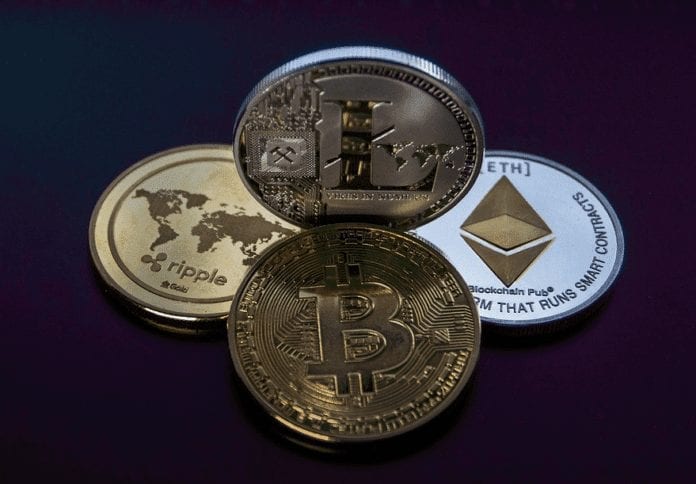Since it was first developed a decade ago, cryptocurrency and its underlying blockchain technology have come a long way towards gaining mainstream acceptance. As these once fringe concepts become household words regularly discussed in the media, blockchain and cryptocurrency gain normalcy in part from being embraced by large scale, established institutions besides just the media.
The most obvious such institutions which herald wide-scale acceptance and adoption of blockchain and cryptocurrency are related to technology and finance such as data storage and banks.
However, in some ways the greatest test of cryptocurrency’s societal acceptance comes from less obvious institutions which reflect cultural and linguistic trends.
In a previous article titled “Cryptocurrency courses coming to college campuses worldwide,” how blockchain and bitcoin are such commonplace interests in the academic world was discussed in regards to college courses which are currently dedicated to cryptocurrency. However, one could still have argued that higher education still reflects trends shaped by and for the young and elite versus the “regular” populace.
Now there’s a new educational juggernaut which has embraced blockchain in such a way that it is undeniably a household name: the dictionary!
One of the oldest and most trusted linguistic guides in the United States, the Merriam-Webster dictionary, just announced its list of the 850 newest, officially recognized words to be given definitions and entries to the now 187 year old lexicon. It is worth noting that Bitcoin was already added to the dictionary in April of 2016.
Usually reports about cryptocurrency regulation cover the attempts by governments and banks to monitor and manage the use of digital coin to avoid fraud, money laundering or tax avoidance. But, Merriam-Webster is now providing a totally different type of regulation, one which assures that when we talk about blockchain or cryptocurrency or ICO, we all mean the exact same thing.
While the official announcement made mention of new terms like “life hack” and “glamping,” the page featured the Bitcoin logo and noted the addition of several blockchain or cryptocurrency terms.
Although some comments on the site have expressed dismay at the addition of newer lingo, the reality is that language is always evolving and it is not the job of linguists to manage or manipulate it, but, to observe, monitor and analyze it.
The inclusion of new words is not a random choice made by a few individuals who read Twitter all day in search of the trendiest buzz words. “In order for a word to be added to the dictionary it must have widespread, sustained and meaningful use,” explains Emily Brewster, associate editor at Merriam-Webster. “These new words have been added to the dictionary because they have become established members of the English language and are terms people are likely to encounter.” Much as cryptocurrency itself seeks to democratize money by creating peer to peer transactions controlled by the users themselves, so, too, does any good dictionary which will reflect the “peer to peer” usage of words by the speakers themselves.
“The language doesn’t take a vacation, and neither does the dictionary,” she further elaborated. “The words we use are constantly changing in big ways and small, and we’re here to record those changes. Each word has taken its own path in its own time to become part of our language — to be used frequently enough by some in order to be placed in a reference for all. If you’re likely to encounter a word in the wild, whether in the news, a restaurant menu, a tech update or a Twitter meme, that word belongs in the dictionary.”
The new entries most specific to the cryptocurrency world, as lifted directly from Merriam-Webster, are:
cryptocurrency noun cryp·to·cur·ren·cy \ ˌkrip-tō-ˈkər-ən(t)-sē , -ˈkə-rən(t)-sē \ : any form of currency that only exists digitally, that usually has no central issuing or regulating authority but instead uses a decentralized system to record transactions and manage the issuance of new units, and that relies on cryptography to prevent counterfeiting and fraudulent transactions. First Known Use: 1990
blockchain noun block·chain \ ˈbläk-ˌchān \ : a digital database containing information (such as records of financial transactions) that can be simultaneously used and shared within a large decentralized, publicly accessible network; also : the technology used to create such a database. First Known Use: 2011
ICO noun \ ˈī-ˈsē-ˈō \ : an initial offering of a cryptocurrency to the public : initial coin offering. First Known Use: 2014
Other terminology related to cryptocurrency tangentially, but, has usage outside this specific field include “microcredit” and “microfinance.”
Both terms “microcredit” and “microfinance” relate to cryptocurrency as well as traditional financial instruments. While the full list has not yet been released in its entirety, we do know that some words commonly used within cryptocurrency circles, such as HODL, will not be included.
At least not this year.
But, next year is a different story. The actual use of blockchain itself as well as usage of words and concepts related to it, whether in Bitcoin news or the dictionary, has grown exponentially over the past few years.

















